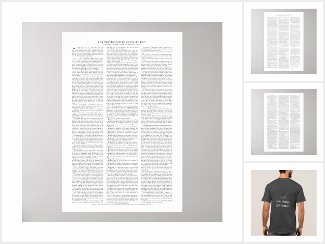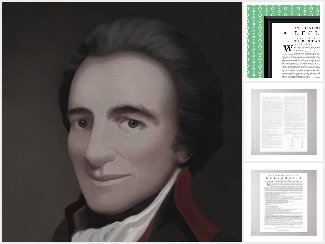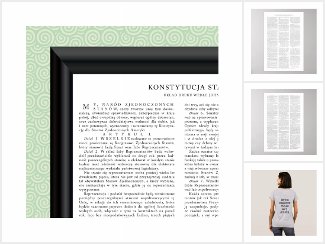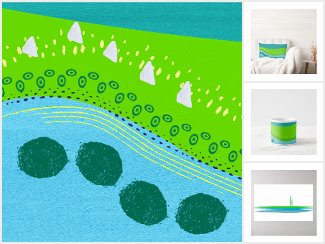Let us think about something usual as a strawberry, to work the Affirmative, Interrogative or Negative.
With the Affirmative, we may think about a real strawberry in view. Grammar will help tell if this view is PAST, PRESENT, or FUTURE; if the strawberry was generally on a table, we predict we will be in some progress with it, or maybe we have had some strawberry experience to a time.


With the Interrogative, the strawberry is more of a theory, as the blue in our ■Mind Practice. In the Negative, there is no strawberry in view at all.
To make own paths with language and time, we need to decide if we affirm, ask a question, or deny. We can talk about Bob and Jemma, whom you are welcome to meet ■OFF THE RECORD.
We are in the PRESENT field of time.
THE AFFIRMATIVE
Simple: Jemma learns.
Progressive: Bob is reading.
Perfect: Bob and Jemma have worked on language.
THE INTERROGATIVE
Simple: Does Jemma worry?
Progressive: Is Bob reverberating?
Perfect: Have Bob and Jemma failed?
Let us make observations. Our human and logical potential for asking questions has language elements move. Grammars name it the inversion.
Jemma is helping Bob.
Is Jemma helping Bob?
To grasp inversion, let us think about verbals and nominals.
Language forms as to play, to be playing, is playing, or having played are verbals. They tell what happens, or what someone or something does. Verbals can be just verbs or verb phrases.
Language forms as a game, a card game, or the game of the Sound are nominals. They answer questions as Who or What? Nominals can be just nouns or noun phrases. (We can learn the game in Part 4 of our journey).

Let us think about a phrase as
The verb “to be” is an irregular verb:
NOMINAL (What?): The verb “to be”
VERBAL: is
NOMINAL (What?): an irregular verb.
The nominal and the verbal are roles. Our ■COLOR CODE works these roles, not isolated words.
I have a book.
I have booked tickets.
American English (the same as any English) is an SVO (SUBJECT―VERB―OBJECT) language. To affirm, we begin with the subject and follow up with the verb, which we may complement with an object.
If we agree to make subjects from nominals, word movement can be generally a highlight. In the famous To be or not to be, that is the question, by Shakespeare, the question, is the SUBJECT, only the order of words is changed, for the sake of style.
Generative grammars recognize language deep structures.
The question is, to be or not to be.
Otherwise, we might have difficulty telling the verbal from the nominal, as in telling a verb from reference to it:
a. Is the verb to be an irregular verb?
Yes, take any irregular verb.
b. Is the verb “to be” an irregular verb?
Yes, it has three forms and six shapes.

Stylistic movement of words is not anything extraordinary. We may compare Exercise 14 in ■SUB-CHAPTER 4.2. The auxiliary can take a feature as ‒(ES), and go before a nominal, or after a pronoun.
The orchard has a precious tree.
A precious tree, does the orchard have.
A precious tree, it does have.
The matter is not in formal or colloquial styles. We could say that language has pronouns for “shorter nominals”.
As emphasis, the Simple Aspect allows saying,
Do read this all, please.

To ask questions, we most often move auxiliaries to places before subjects. Dependent on the grammar approach, we may view the word order as VSO then, or SVO still, as our mauve head verb does not move.
We can play the Sound.
SUBJECT: We
AUXILIARY: can
HEAD VERB: play.
Can we play the Sound?
AUXILIARY: Can
SUBJECT: we
HEAD VERB: play?
Dependent on the context and style, we also might ask a question, saying
“You can play the Sound?”
The deep structure would be
{Can you play the Sound?}
There is no syntactic marker for such questions, and we interpret them in context, the same as all language, anyway.

Let us now have a look at patterns that help deny, in the PRESENT field of time.
Simple: Jemma does not worry.
Progressive: Bob is not reverberating.
Perfect: Bob and Jemma have not failed.
In everyday speech, we may abbreviate our patterns.
Simple: Jemma doesn’t worry.
Progressive: Bob isn’t reverberating.
Perfect: Bob and Jemma haven’t failed.
We can combine the Interrogative and Negative extents, to ask negative questions. We could ask,
“Isn’t Jemma smiling?”
(We really say that Jemma is smiling).

Simple: Doesn’t Jemma travel in grammar?
Progressive: Isn’t Bob traveling in grammar?
Perfect: Haven’t Bob and Jemma traveled in grammar?
Let us compare formal American English, as for school. Formal syntax does not follow abbreviated auxiliaries.
Simple: Does Jemma not travel in grammar?
Progressive: Is Bob not traveling in grammar?
Perfect: Has Bob not traveled in grammar?
Let us focus on word movement and language features. We may use Aspect Simple. The verb to do is auxiliary here. It takes the ending ‒(ES) for the 3rd person singular, he, she, or it, as an auxiliary and as a head verb too.
The Affirmative: Jemma smileS.
The Interrogative: DoES Jemma travel in grammar?
With the lexical items no or not, our human logical capacity for denying is capable of the Negative as well as negation. We make the Negative with auxiliaries.
The Negative: Jemma doES not worry.
The Negative Interrogative: DoES Jemma not earn her credits?
In everyday language the forms are most often abbreviated.
The Negative: Jemma doESN’T worry.
The Negative Interrogative: DoESN’T Jemma earn her credits?
■APPENDIX 4 has patterns for all Aspects, also with abbreviations.
The logic for the FUTURE is most likely to bring the auxiliary WILL into our phrases, together with the negative element not.

Simple: Jemma will not worry.
Progressive: Bob will not be reverberating.
Perfect: Bob and Jemma will not have failed.
The phrase “will not” becomes “won’t”, in everyday American.
Simple: Jemma won’t worry.
Progressive: Bob won’t be reverberating.
Perfect: Bob and Jemma won’t have failed.
Again, formal American English may not follow abbreviation.
Simple: Will she not smile?
Progressive: Will he not be smiling, too?
Perfect: Will they not have earned their credits?
Negation works on nominals more, and the verb may remain in the affirmative. Negation may be tricky.
No strawberry is always better than a bad berry: it is better to have no strawberries than bad strawberries.
No strawberry is better than a bad berry: the bad berry is the best.

Feel welcome to ■SUBCHAPTER 5.1. We sum up on our logic so far.
■This text is also available in Polish.
ADVERTISEMENT
Book format in preparation.
In the first part of the language journey, feel welcome to consider a picture for
■ the grammatical Past, Present, and Future;
■ the Simple, Progressive, and Perfect;
■ infinitive, auxiliary, and head verb forms;
■ the Affirmative, Interrogative, Negative, and Negative Interrogative;
■ irregular verbs and vowel patterns: high and low, back and front.
Third edition, 2025.



The world may never have seen her original handwriting, if her skill was taken for supernatural. Feel welcome to Poems by Emily Dickinson prepared for print by Teresa Pelka: thematic stanzas, notes on the Greek and Latin inspiration, the correlative with Webster 1828, and the Aristotelian motif, Things perpetual — these are not in time, but in eternity.
■Free access, Internet Archive
■E-pub | NOOK Book | Kindle
■Hard cover, Barnes & Noble | Lulu

Psycholinguistics
Linguistics
& Translation
Knowledge gains with good translation
■Public Domain
Translation. com
American English & Polish

Internet Archive,
the free text and image repository
■Feel welcome to use my free materials■
The posters are available to shop online as well.



